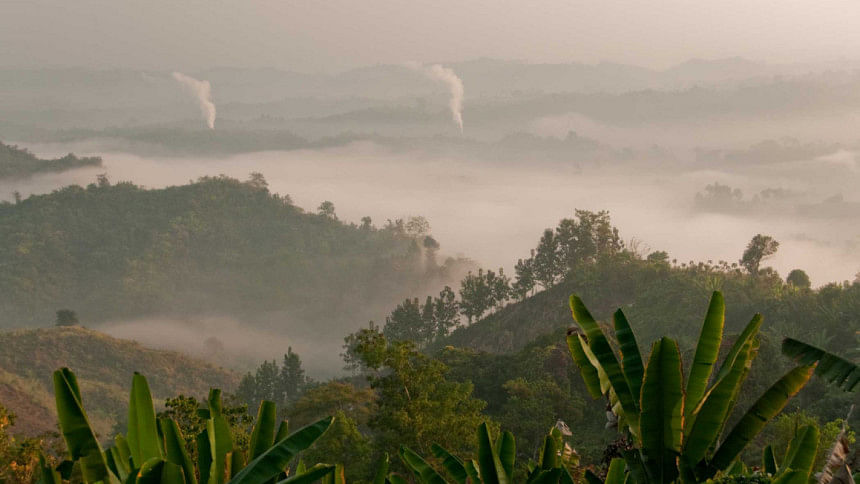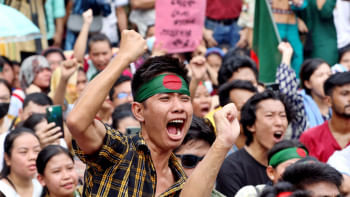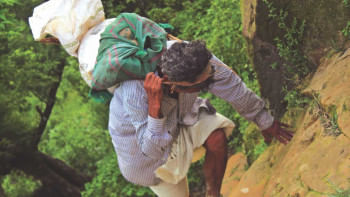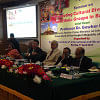Let’s not stall the implementation of CHT Accord any longer

The Chittagong Hill Tracts (CHT) Peace Accord was signed with a promise to move forward. The conflict in the CHT region was never just about land or ethnicity—it was always political. In the early stages, under the leadership of the Parbatya Chattagram Jana Samhati Samiti (PCJSS), the movement was characterised by non-violent tactics. However, when every democratic path was blocked, an armed struggle emerged. Still, the doors for dialogue never closed.
After 26 formal rounds of negotiation—six with the Ershad government, 13 with Khaleda Zia's BNP, and seven with Sheikh Hasina's Awami League—the CHT accord was signed on December 2, 1997.
It was a landmark moment. Guns were laid down. Hope returned to the hills. The accord promised recognition of the CHT as a unique indigenous region, devolution of authority to local councils, withdrawal of military oversight, return of dispossessed land through a functional land commission, and so on.
More than 27 years on, implementation of the accord is fraught with half-truths and selective memory.
The former Awami League government had its own perspective on the situation. It proudly asserted that 65 out of 72 sections of the CHT Accord had been "fully implemented" and three others partially completed, while implementation of the remaining sections were merely a matter of time. However, the PCJSS, one of the signatories to the accord, says only 25 sections can genuinely be considered implemented, and 29 sections have not only been ignored but also actively violated. Eighteen sections have been partially implemented. The gap between what is documented by the former government and the reality on the ground is not just a political issue, it has become a matter of trust. For the people in the CHT, that trust has significantly eroded.
According to the accord, several key responsibilities were to be transferred to the hill district councils. Some of these responsibilities included oversight of law and order, land administration, local policing, forest and environmental management, and development of communication infrastructure. Although this transfer was officially labelled as "fully implemented" by the former government, in practice they remain largely unfulfilled. Hill district councils are often sidelined, underfunded, and politically hijacked.
The land commission, established to resolve long-standing land disputes between indigenous communities and Bangalees living there, has become a shadow of its former mandate. Of the 26,000 land-related applications submitted, not one has been resolved. The commission exists without adequate staffing, resources, or political will. A planned meeting of the commission in 2022 was cancelled under pressure from Bangalee groups.
Even the committee meant to monitor the accord's implementation has no office, no staff, and no budget.
The long detour
The Awami League, who signed the accord when in power, was in government for more than a decade and a half. And yet, they failed to implement its core promises. In many ways, their legacy is one of stalling, sidestepping, and selectively interpreting provisions to maintain control while appearing compliant.
From 2014 onwards, the stagnation became more pronounced. Government reports touted numerical success, but the situation on the ground told a different story. The institutions established under the accord have increasingly become vehicles for political appointments rather than vehicles of change. The accord, which could have served as a blueprint for pluralism, decentralisation, inclusion and justice, has instead become a case study of how good intentions can decay when promises are left to languish in bureaucratic dead ends.
A new chance?
Now, Bangladesh stands at another political junction. Following unprecedented student-led protests and civic unrest in July-August last year that saw the fall of the former government, an interim administration led by Prof Muhammad Yunus is currently in power. This moment offers a chance to correct the course—to honour the 1997 agreement in policy and practice.
The government has reconstituted a three-member Implementation and Monitoring Committee to oversee the long-stalled implementation of the CHT Accord. The committee is led by Foreign Affairs Adviser M Touhid Hossain as convener, with PCJSS President Santu Larma and Tribal Refugee Affairs Taskforce chair Sudatta Chakma as members. Formed on January 12, the committee has been tasked with supervising implementation activities, coordinating relevant government bodies, addressing unresolved issues, and making policy recommendations. It will also oversee the repatriation and rehabilitation of refugees and internally displaced persons. The CHT affairs ministry will provide all logistical and secretarial support, and the committee may form sub-committees as needed to ensure smooth execution of the accord's provisions. However, a clear, time-bound roadmap is required to address the unfulfilled provisions.
The implementation of the accord is not about goodwill. It is about obligation. The accord is a contract, not a concession.
During a recent discussion in Dhaka organised by the Bangladesh Indigenous Peoples' Forum, indigenous leaders and civil society groups called on the interim government to immediately initiate a dialogue with the PCJSS and other stakeholders to implement the long-stalled CHT Accord. They stressed the urgent need to activate the Land Dispute Resolution Commission, reform flawed legal frameworks, and ensure the democratic functioning of institutions established under the accord. Frustration over inaction and political neglect was evident, with participants demanding a clear roadmap to restore peace and justice in the hills.
The CHT Accord began with hope, only to find itself rerouted and restrained. But the people of the CHT haven't forgotten. The accord lives on—in dusty files, in the youth born after 1997, in the collective memory of a region that still waits. There's still time to get on the right track, but the window is narrow.
Milinda Marma is an indigenous writer and activist. He can be reached at [email protected].
Views expressed in this article are the author's own.
Follow The Daily Star Opinion on Facebook for the latest opinions, commentaries and analyses by experts and professionals. To contribute your article or letter to The Daily Star Opinion, see our guidelines for submission.

 For all latest news, follow The Daily Star's Google News channel.
For all latest news, follow The Daily Star's Google News channel. 











Comments